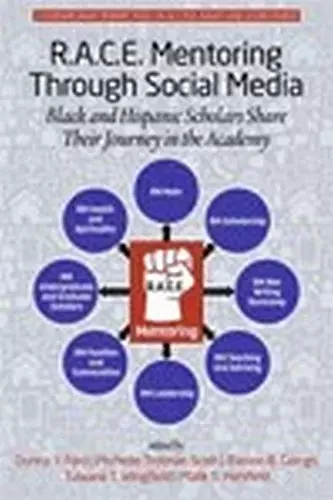R.A.C.E. Mentoring Through Social Media
Black and Hispanic Scholars Share Their Journey in the Academy
Ramon B Goings editor Donna Y Ford editor Malik S Henfield editor Michelle Trotman Scott editor
Format:Paperback
Publisher:Information Age Publishing
Published:30th Nov '16
Currently unavailable, and unfortunately no date known when it will be back

The Ivory Tower is and can often be a lonely place for faculty of color. Social injustices run deep and are entrenched within academia. Faculty of color (FOC), more specifically Black and Hispanic, often lament about the `Black/Brown’ tax that frequently takes its toll both personally and professionally, and pushes them out of the academy. Similar to trends in P?12 settings, educators of color in postsecondary contexts represent less than 10% of the profession. In essence, we are an anomaly and the implications of this are clear and dire, as evidenced by persistent achievement, access, and expectation gaps within the academy.
Scholars of color (SOC), at all stages, but particularly during doctoral training, frequently struggle to not just survive, but to thrive, in the academy. Too many fail to earn their doctoral degree, with many wearing the All But Dissertation (ABD) as a badge of honor. Although ABD is not a degree, many scholars of color receive inadequate mentoring, often substandard in comparison to the hand?holding White students receive, which leaves far too many doctoral students of color lost, bewildered, angry, indignant, and defeated. This righteous indignation is justified, but excused away using the myth of meritocracy and colorblind notions of success; followed by a myriad of problems steeped with victim blaming, as noted in the classic Presumed Incompetent: The Intersections of Race and Class for Women in Academia (Gutiérrez y Muhs, Niemann, González, & Harris, 2012). The aforementioned work was not the first treatise on higher education and how the non?status quo, along with those grappling with oppression and double standards, experience the profession called higher education. Moreover, The Chilly Climate (Sandler, Silverberg, & Hall, 1996) report, which focused on females, was also telling, but not enough was addressed and disclosed about females of color, until version two. But these issues do not stop with females of color, but instead, extend to all faculty of color.
R.A.C.E. Mentoring, a social media Facebook group, with several subgroups (see Figures 1 and 2) was created by Donna Y. Ford, Michelle Trotman Scott, and Malik S. Henfield in 2013, to tackle the numerous thorny and contentious issues and challenges in higher education. We began by intentionally attending to the needs of students enrolled at mostly...
ISBN: 9781681237039
Dimensions: unknown
Weight: unknown
322 pages